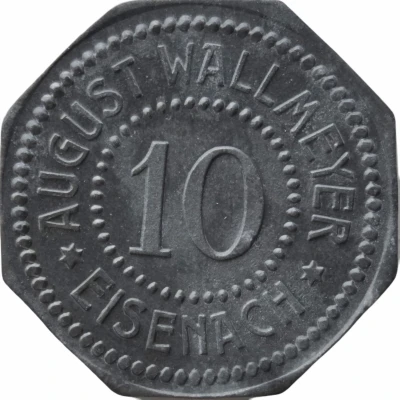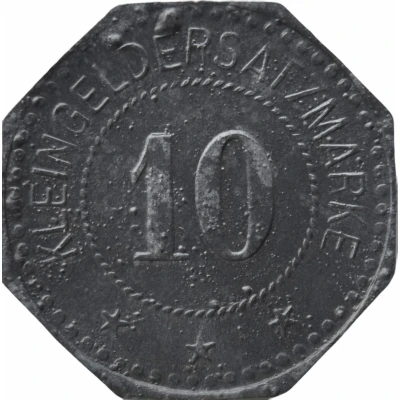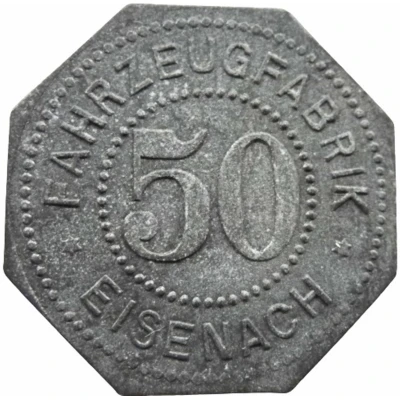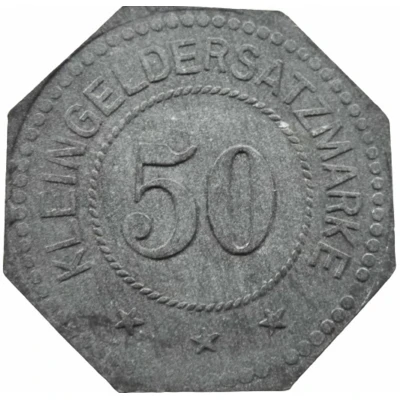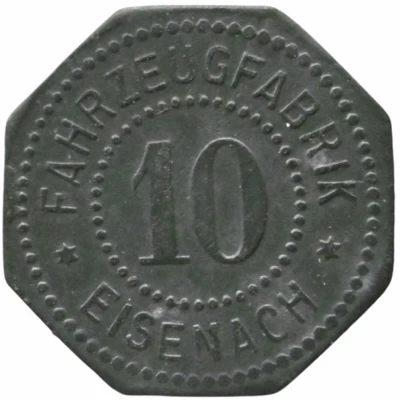
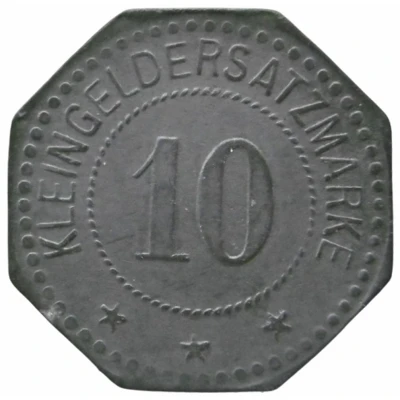

© Willem63 (CC BY-NC-SA)
10 Pfennigs - Eisenach (Fahrzeugfabrik) ND
| Zinc | 2.2 g | 20.8 mm |
| Issuer | City of Eisenach (Saxe-Weimar-Eisenach) (Federal state of Saxe-Weimar-Eisenach) |
|---|---|
| Type | Standard circulation coin |
| Value | 10 Pfennigs (10 Pfennige) (0.10) |
| Currency | Mark (1914-1924) |
| Composition | Zinc |
| Weight | 2.2 g |
| Diameter | 20.8 mm |
| Thickness | 1.1 mm |
| Shape | Octagonal (8-sided) |
| Technique | Milled |
| Orientation | Medal alignment ↑↑ |
| Demonetized | Yes |
| Updated | 2024-10-04 |
| Numista | N#64422 |
|---|---|
| Rarity index | 90% |
Reverse
Pearl rim, legend surrounding rope circle with denomination centered
Script: Latin
Lettering:
KLEINGELDERSATZMARKE
5
★ ★ ★
Edge
Plain
Comment
Menzel: BBBHeinrich Ehrhardt founded the Fahrzeugfabrik Eisenach (FFE) in Eisenach on 3 December 1896 as a stock company. Initially he produced bicycles and guns, but after two years he started to produce a motor car which he called the Wartburg, a licensed model of the French Decauville. The company was the third to manufacture cars in Germany, the first being Benz & Cie and the second being Daimler Motoren Gesellschaft. His son Gustav subsequently took over the factory, which at the end of the 19th century employed 1,300 workers and was one of the largest in Thuringia.
Interesting fact
One interesting fact about this coin is that it was minted during a time of economic and political turmoil in Germany. The coin was issued in the late 1920s, during the Weimar Republic, a period of hyperinflation and political instability that preceded the rise of the Nazi regime. Despite the challenges of the time, the coin still maintains its value and historical significance, serving as a reminder of the resilience and determination of the German people during a difficult period in their history.
